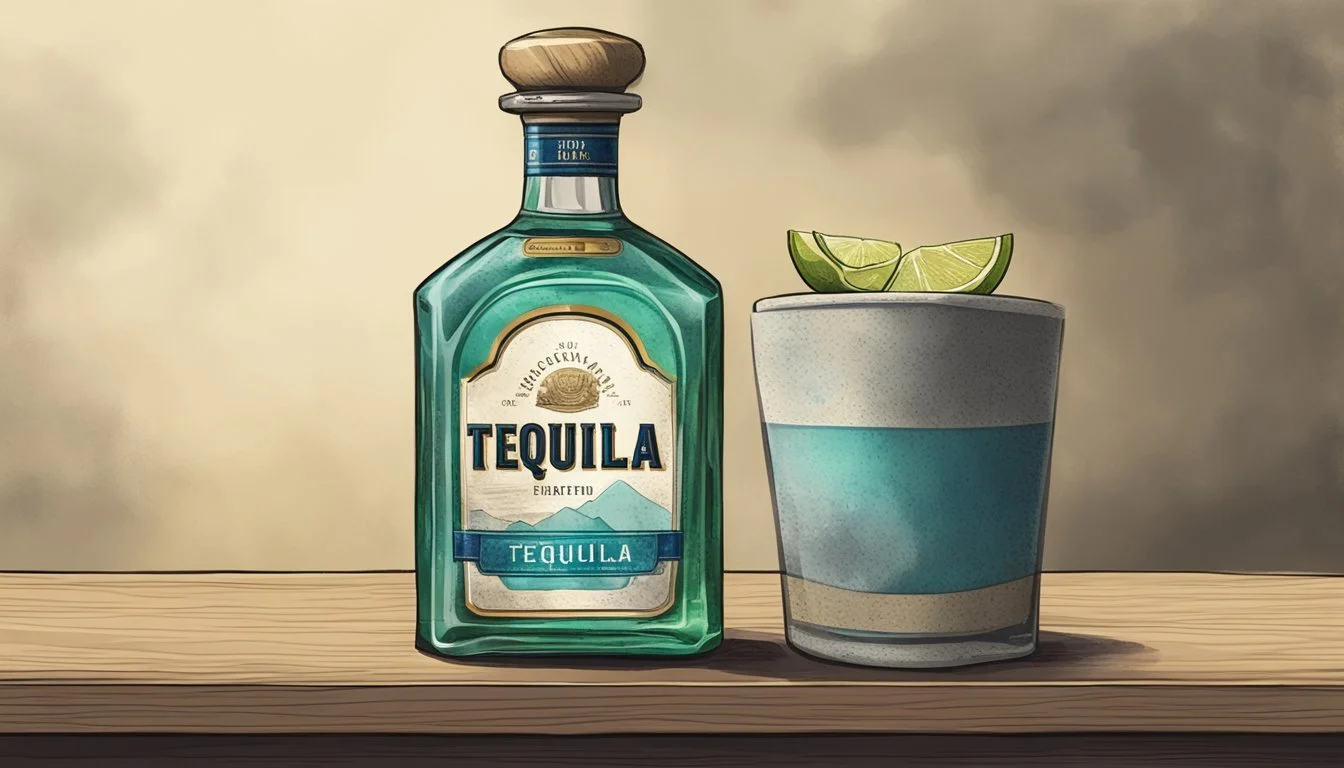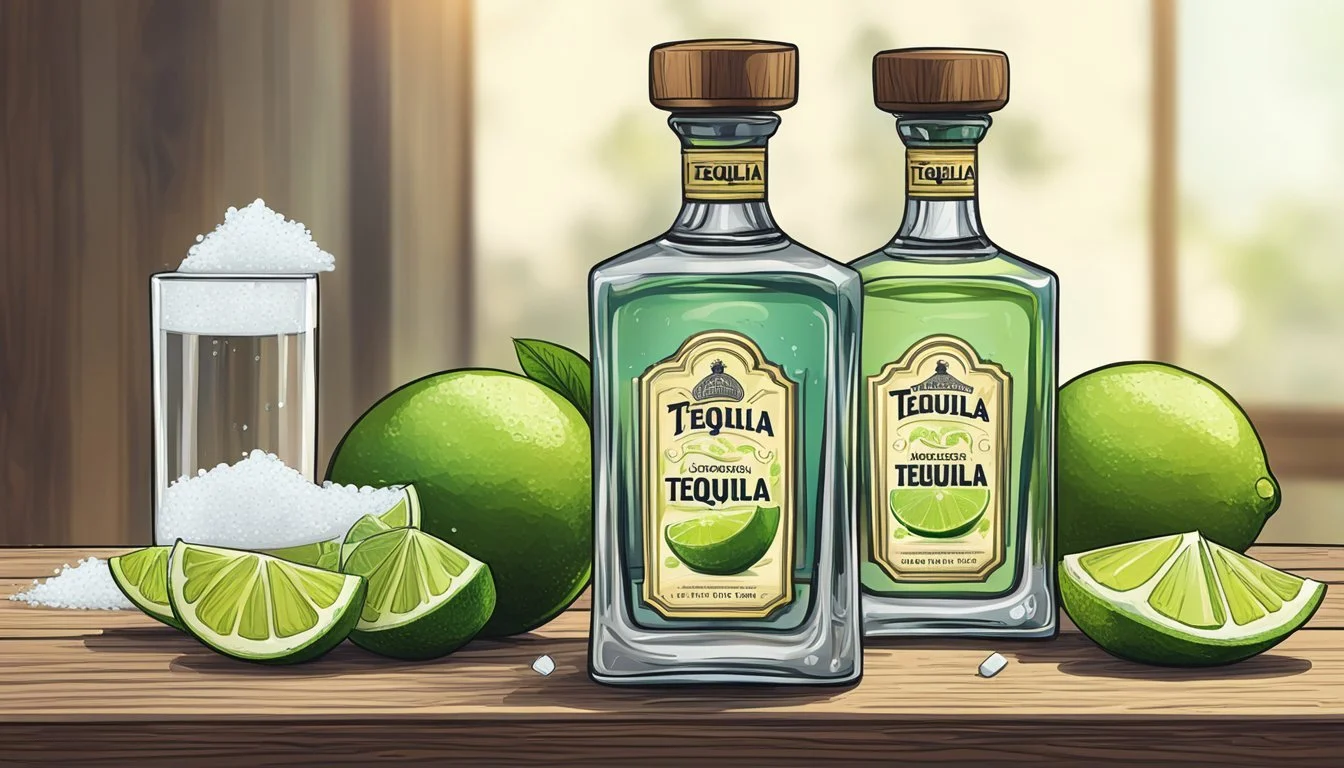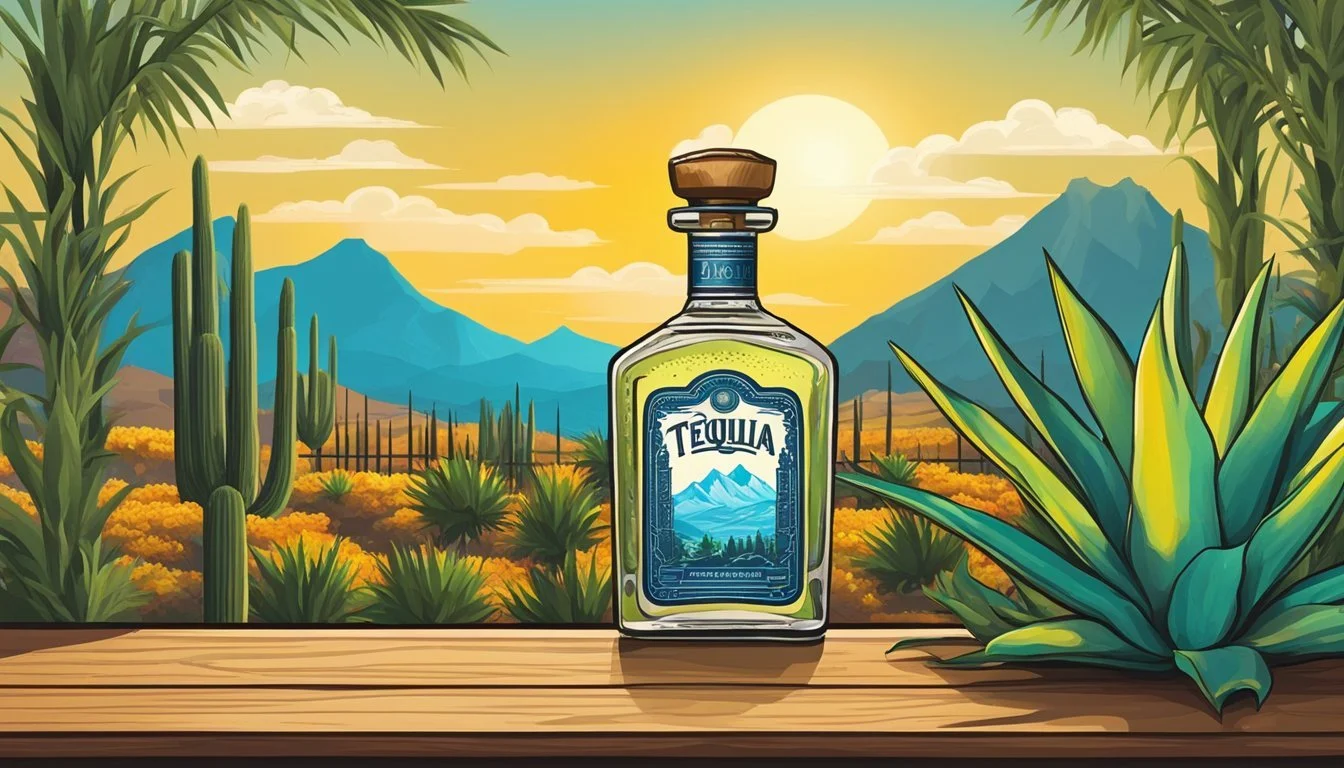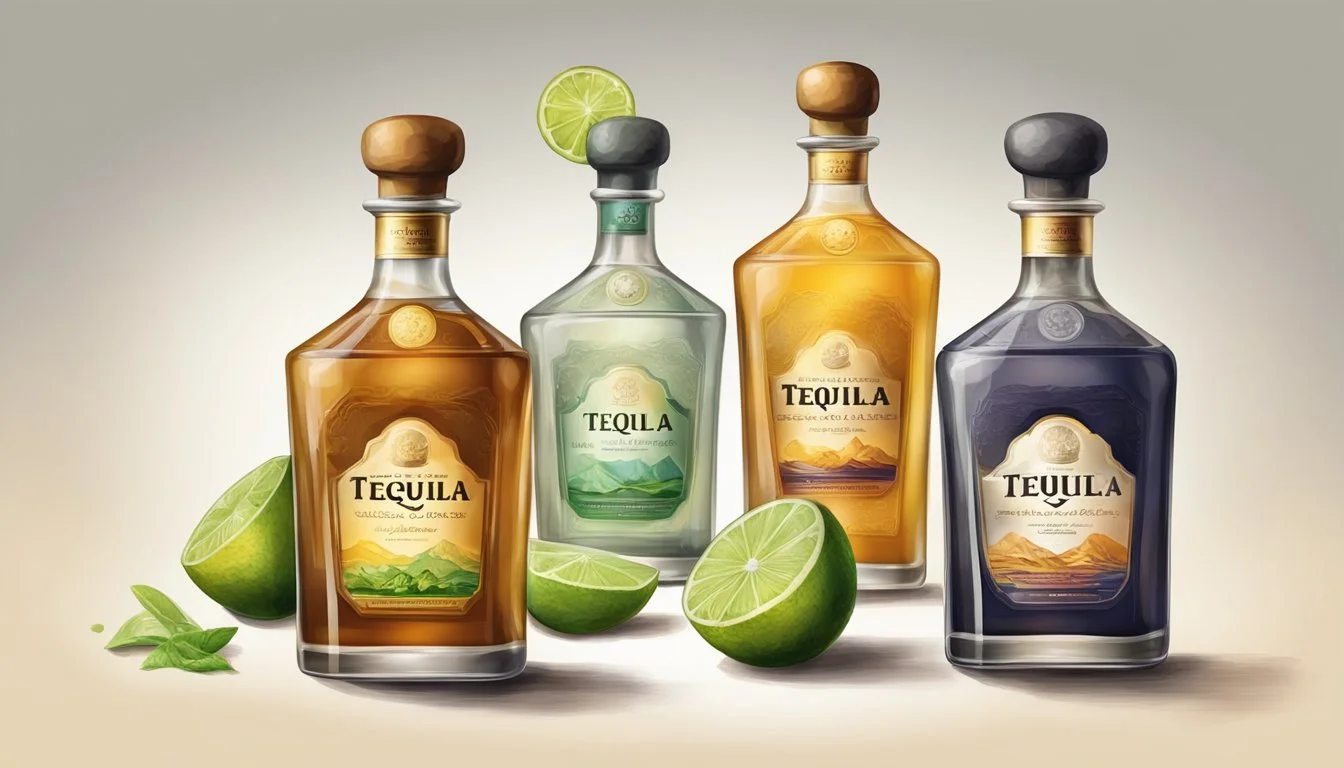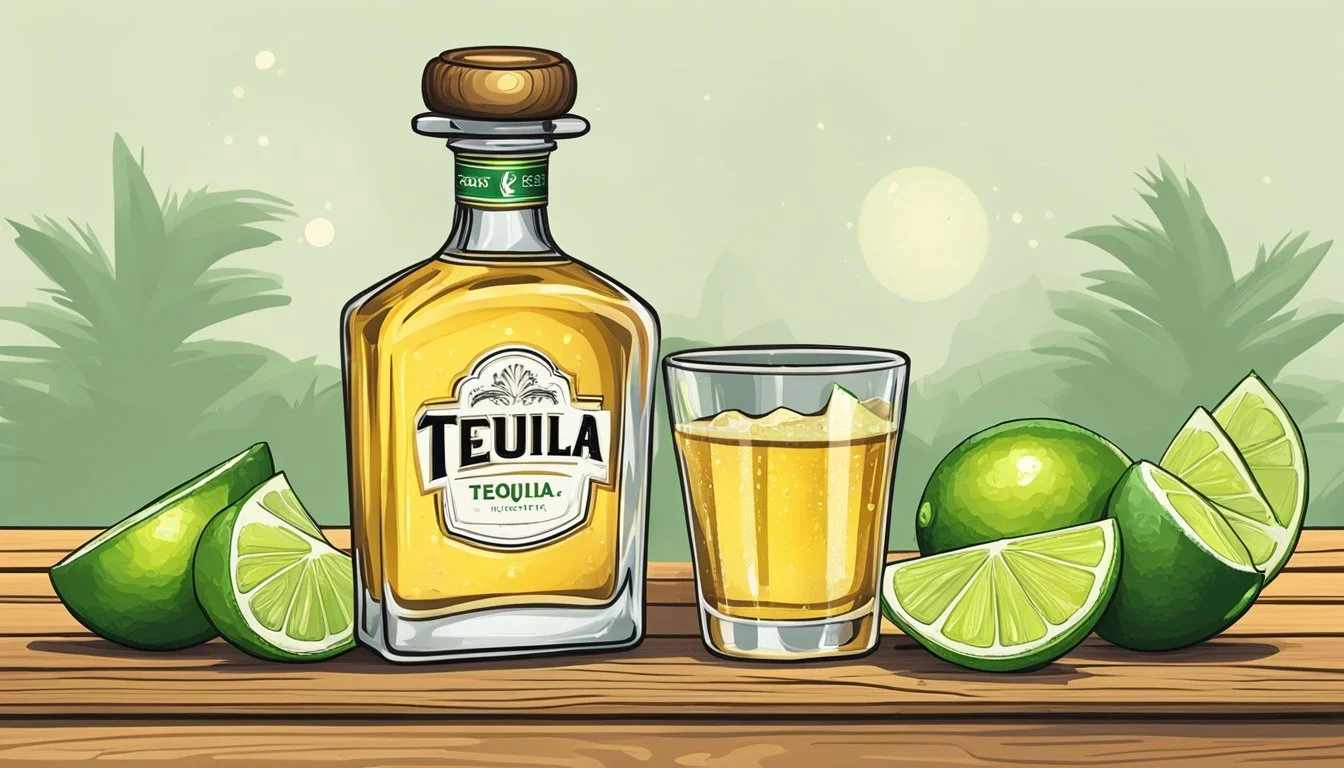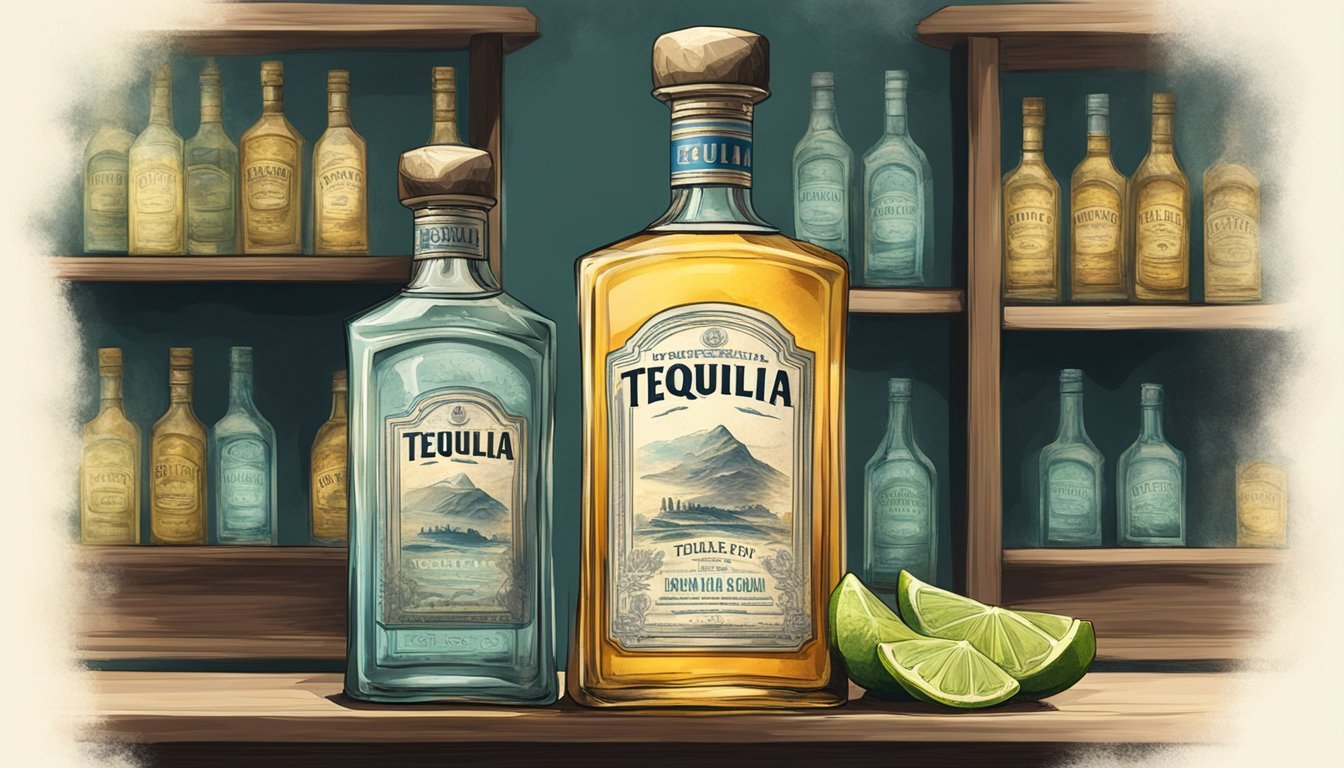Does Tequila Go Bad?
Understanding Shelf Life and Storage Tips
Tequila, the celebrated Mexican spirit distilled from the blue agave plant, enjoys a reputation for durability and longevity. Unlike other spirits, tequila is not prone to spoiling in the traditional sense. Properly stored, tequila can last indefinitely due to its high alcohol content, which serves as a natural preservative, protecting the liquid from spoilage and bacterial growth.
However, while it may not spoil, the quality and flavor profile of tequila may change over time. Once a bottle of tequila is opened, it is exposed to oxygen, which can gradually alter its taste. Storing tequila in a cool, dark place can help preserve its qualities, but connoisseurs generally recommend consuming an opened bottle within a few months to enjoy it at its best. Observing the tequila for any changes in color, cloudiness, or an off-putting smell can help determine if it has been negatively affected.
Understanding Tequila
Tequila is a distilled spirit crafted from the blue agave plant, primarily in the area surrounding the city of Tequila, Jalisco, Mexico. With its distinctive flavor, tequila is a popular alcoholic beverage that has garnered a loyal following worldwide.
The Production Process: Tequila's journey begins with the harvesting of the blue agave, which is then cooked to extract the sugary sap. Through fermentation, this sap is transformed into alcohol, and the subsequent distillation process refines the liquid into a potent spirit. The resulting product is known as blanco (or silver) tequila when it is bottled immediately or shortly after distillation.
Aging Tequila: Some tequila is allowed to age, developing complexity and taking on flavors from the barrels. The categories include:
Reposado: Aged between two months and one year.
Añejo: Aged between one to three years in oak barrels.
Extra Añejo: These tequilas rest for over three years, increasing their depth and complexity.
Alcohol Content: As with most spirits, the alcohol content in tequila usually hovers around 40% to 50% by volume. The aging process can subtly influence this percentage through evaporation, often termed the "angel's share."
Flavor Profiles: The flavor of tequila can vary widely:
Blanco typically showcases the purest taste of agave, with a sharp and clean profile.
Reposado and Añejo tequilas carry additional flavor notes such as vanilla, oak, and caramel due to their aging process in barrels.
Tequila is enjoyed in many forms, from sipping it neat to using it as a base in various cocktails. Its unique properties and meticulous production process make it a notable member of the distilled spirits family.
Factors Affecting Tequila Quality
Maintaining the quality of tequila over time depends largely on how it is stored, its exposure to various elements, and the effectiveness of its bottle sealing. These factors can have a significant impact on the tequila's flavor, aroma, and shelf life.
Storage Conditions
Proper storage is crucial for preserving tequila's quality. It should be stored upright to prevent the liquor from coming into prolonged contact with the cap, which could affect its taste. Temperature plays a key role—as fluctuations can lead to expansion and contraction of the bottle, which may allow air to enter. A cool, dark place is ideal for storage, as it minimizes the risk of spoilage.
Ideal conditions: Upright position, stable temperature, cool and dark location
Temperature to avoid: Extreme heat or cold
Exposure To Elements
Tequila's quality is sensitive to its environment, with light and heat being primary concerns. Direct sunlight can degrade the tequila over time, while excessive heat can lead to oxidation, changing the liquor's chemical structure and influencing taste negatively.
Light exposure: Minimize exposure to preserve flavor and color
Heat exposure: Avoid to prevent oxidation and taste alteration
Bottle Sealing
The seal of the bottle is a tequila's shield against the outside world. Once the seal is broken, exposure to air can begin to affect the tequila's qualities. A tight seal minimizes oxidation, preserving the tequila's integrity longer. Even after opening, a correctly resealed bottle can keep tequila at its peak condition for up to a year.
Importance of sealing: Protects from air and prevents oxidation
Impact of a broken seal: Increases risk of quality decline
How To Store Tequila
Proper storage of tequila is essential to maintain its quality and extend its shelf life. An unopened bottle of tequila has a virtually indefinite shelf life due to its high alcohol content, which acts as a preservative. However, once a bottle is opened, the quality can begin to decline.
To store tequila properly, one should adhere to the following guidelines:
Storage Environment: Tequila should be kept in a cool, dark place. A kitchen pantry or cabinet away from heat sources and sunlight is ideal. Heat and light can cause tequila to lose its distinct flavors and become milder.
Position: Always store tequila upright. This prevents the alcohol from coming into prolonged contact with the cap, which could affect the seal or the liquid itself if the cap is not of high quality.
Seal: For an opened bottle, it is crucial to tightly seal it after each use. This minimizes oxidation and evaporation. A good seal also helps prevent contamination.
Refrigeration: It is not necessary to refrigerate tequila as it does not spoil easily. Still, some may choose to refrigerate after opening to maintain a consistent temperature, though room temperature is generally preferred.
Tequila should be consumed within one year of opening for the best taste experience. Whether an unopened or opened bottle, they must be sealed well. Proper storage ensures that the character and complexity of the tequila are preserved for as long as possible.
Shelf Life of Tequila
The shelf life of tequila greatly varies between unopened and opened bottles. Understanding these differences is crucial for maintaining its quality and flavor profile.
Unopened Tequila
An unopened bottle of tequila has an indefinite shelf life. This means that, as long as the seal remains intact, tequila will not spoil or expire. For collectors or those saving a bottle for a special occasion, this news is reassuring, ensuring that the tequila they store will last for many years without degrading, provided it is kept in suitable conditions.
Ideal Storage Conditions for Unopened Tequila:
Keep it upright to prevent the cork from deteriorating due to prolonged contact with the liquid.
Store at 50-55° F (10-13° C) for optimal temperature control.
Ensure the storage area is dark to prevent light-induced changes.
Opened Tequila
Once a bottle of tequila is opened, the clock starts ticking on its peak quality. Typically, an opened bottle of tequila is best consumed within one year. As time passes beyond this period, the tequila may begin to lose its distinctive aroma and flavor nuances, eventually leading to a decline in overall sensory experience.
Preservation Tips for Opened Tequila:
Ensure the bottle is tightly sealed after each use to minimize oxidation and evaporation.
While not as critical as with an unopened bottle, storing opened tequila in a cool, dark place helps prolong its freshness.
By adhering to these guidelines, consumers and aficionados alike can preserve the character of their tequila, whether stocking unopened collectibles or enjoying an opened bottle over time.
Indicators of Spoiled Tequila
Tequila may not expire, but it can spoil. Knowing the indicators of spoilage is key to ensuring the quality and safety of this spirit.
Visual Signs
Spoiled tequila often has visible changes, indicating that it is no longer at its best quality. One should look for:
Color changes: Clear tequila that becomes murky or dark tequila that appears dull may be oxidized.
Sediment formation: The presence of particles or sediment that were not there before could be a sign of contamination.
Changes in Aroma and Taste
Tequila's aroma and taste are reliable indicators of its condition. A decline in quality can be detected through:
Unpleasant aroma: An off smell distinct from the tequila's original aroma suggests spoilage.
Altered taste: A tequila exhibiting an unpleasant flavor or a noticeable difference from its intended taste profile is likely compromised.
Health and Safety Considerations
When it comes to tequila, understanding the health and safety considerations tied to its consumption after expiration and the effects of spoiled tequila is essential. Proper storage and attention to spoilage indicators ensure the tequila remains safe to drink.
Consumption After Expiration
Tequila's shelf life is remarkably long due to its high alcohol content, which acts as a preservative. While an unopened bottle does not expire, once opened, its quality may deteriorate over time. The optimal time frame for consuming an opened bottle of tequila is generally one year, as this period maintains its prime quality and minimizes the likelihood of spoilage. After this period, the spirit may show signs of evaporation and aging, affecting its taste and aroma but not necessarily rendering it unsafe to drink.
Effects of Spoiled Tequila
While tequila has a high alcohol content that inhibits bacteria and mold, spoilage can still occur, particularly due to impurities or improper storage. Spoiled tequila may present changes in color, appearance, or smell, and if it smells sour or unpleasant, it should be discarded to avoid potential health risks. Drinking spoiled tequila could lead to an unpleasant taste experience and in rare cases, if contamination has occurred, it could make an individual sick. It's important to note that true spoilage involving harmful bacteria is highly unlikely in spirits like tequila, but the presence of non-harmful impurities can still negatively impact flavor and should be a signal to cease consumption.
Enhancing Tequila Enjoyment
To fully appreciate tequila, one should focus on cocktail preparation techniques and storage methods that ensure the spirit maintains peak quality.
Cocktail Preparation
Crafting the perfect cocktail is an art that begins with the right ingredients. When making a margarita or any tequila-based cocktail, using high-quality tequila is essential. A clean, strong base ensures that the drink's flavor profile is balanced and robust. Here's a simple guideline for a classic margarita:
Ingredients:
2 oz Tequila
1 oz Lime juice
1/2 oz Triple sec
Salt for rimming
Ice cubes
Method:
Rim the glass with salt.
Combine tequila, lime juice, and triple sec in a shaker with ice.
Shake well and strain into the prepared glass.
Garnish with a lime slice.
For cocktails like margaritas, fresh ingredients and proper proportions are paramount. The freshness of the lime juice and the quality of the triple sec will significantly affect the taste.
Ensuring Peak Quality
To ensure tequila remains at its peak quality, attention to storage is key:
Seal: Keep the bottle tightly sealed to prevent oxidation.
Temperature: Store away from direct sunlight in a cool, consistent temperature.
Position: Place the bottle upright to minimize contact with the cork, which could alter the flavor.
While tequila does not go bad to the point of becoming unsafe to drink, its quality can diminish over time, especially after opening. To enjoy the tequila in its best state, consume it within one year of opening—this is when it's considered to be at peak quality for its flavor profile and aromatic properties.
Both for neat sipping and cocktail mixing, ensuring that the tequila is stored properly will extend its life of optimal taste and ensure that each shot or mixed drink remains true to the strong spirit's intended experience.
Frequently Asked Questions
This section answers frequently asked questions about the preservation, storage, and effects on the flavor of tequila.
Preservation
When tequila is unopened, it does not expire and can last indefinitely due to the high alcohol content acting as a preservative. Once the seal is broken, the clock starts ticking on its longevity. Tequila should ideally be consumed within one year after opening, as beyond this point, it may begin to degrade, although it won't necessarily spoil in a way that makes it unsafe to drink.
Storage Tips
To properly store tequila and ensure its longevity, one should:
Keep the bottle sealed tightly when not in use.
Store in an upright position to minimize oxidation.
Place the bottle in a cool and dark environment, such as a liquor cabinet, far from direct sunlight and heat sources.
Aim for a storage temperature between 50-55° F (10-13° C) to maintain optimal quality.
Effects on Flavor
If tequila is not stored correctly, it may evaporate slightly and lose some of its nuanced flavors. An improperly sealed bottle can lead to oxidation, which can degrade the quality and intensity of the tequila's flavor profile. A simple sniff test can help determine if the tequila has an off smell, indicating that it may not be in its prime condition. Flavor can also be impacted if the tequila becomes murky or changes color, suggesting possible contamination.
Conclusion
Tequila, a distilled spirit enjoyed in various cocktails, maintains its quality for an extended period when unopened. Unlike perishable goods, tequila in a sealed bottle is highly resistant to spoilage due to its high alcohol content. It is typically safe to consume for years and does not expire in a traditional sense.
When a bottle of tequila is opened, it should ideally be consumed within six months to one year to enjoy its optimal quality. Proper storage plays a crucial role in preserving tequila's flavor and appearance. The spirit should be kept in a cool, dark place, away from direct sunlight and fluctuating temperatures.
Indicators of Potential Deterioration:
Appearance: Any change in clarity, or the presence of cloudiness and sediments, may signal spoilage.
Smell: An off or unusual odor is often a giveaway that the tequila may not be suitable for consumption.
Taste: A noticeable deviation from the tequila's typical flavor profile could indicate degradation.
To prolong the shelf life of an opened bottle, it should be tightly sealed after each use, minimizing its exposure to air. While the taste of properly stored tequila can sometimes be preserved well beyond six months, it is best to consume it within this period to experience its finest quality. It's important to be mindful of signs of spoilage and to store tequila correctly to ensure the best possible taste for one's cocktails or neat consumption.

